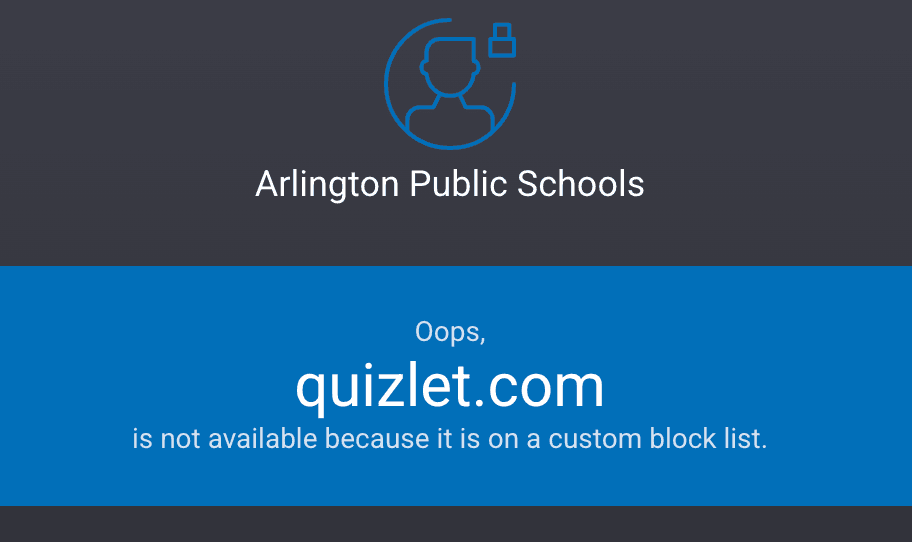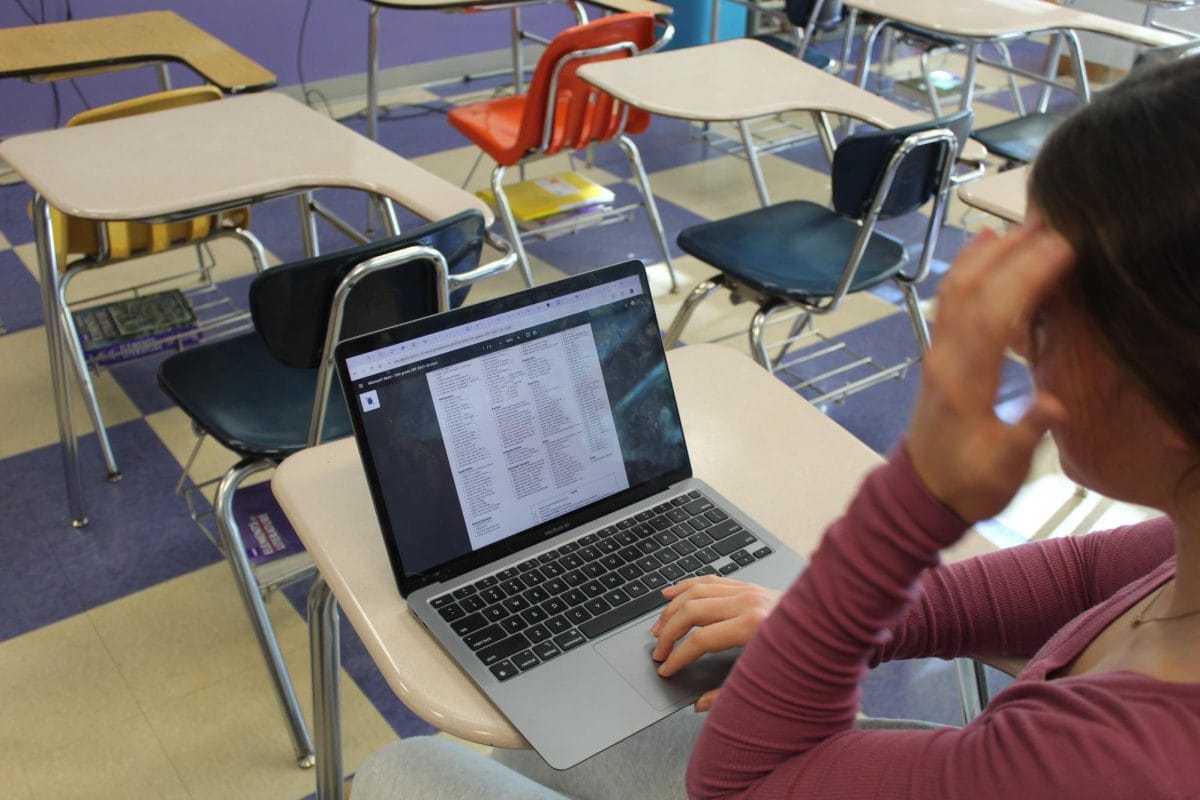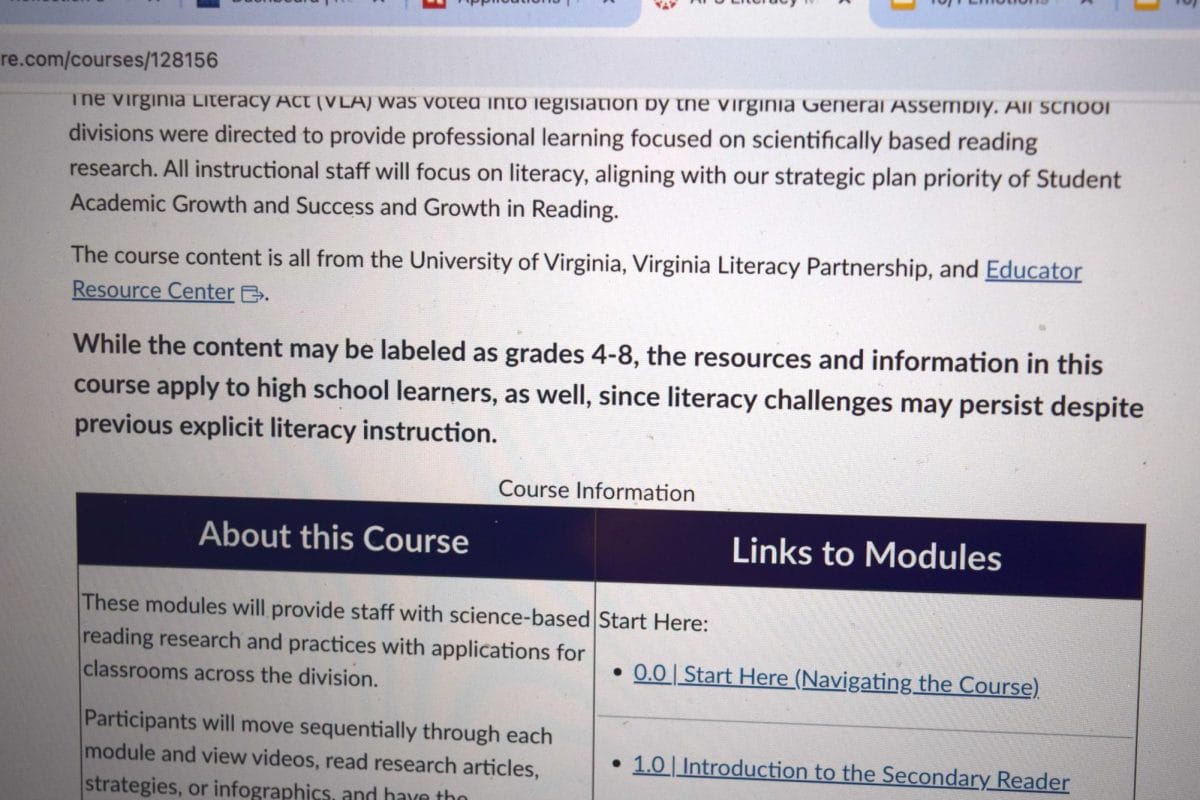The first equity policy in Arlington Public Schools’ (APS) history was adopted on August 20 this year, after superintendent advisory committees, various APS offices and the School Board spent months working through numerous drafts and revisions. It was ultimately introduced to the public weeks before the start of the school year, although no policy-implementation-plan (PIP) was adopted in conjunction with the general policy.
A PIP is a comprehensive document that outlines how APS will specifically implement a policy. It contains more specific guidance to staff and students — instead of explaining what will be done, it explains how it will be done. For many policies, the PIP is adopted at the same time as the general statement, but the equity policy is unique. APS released the general statement separately because it was deemed thorough enough to proceed temporarily without the corresponding PIP, which will be adopted by the start of next summer.
“The rationale behind not releasing the policy-implementation-plan [is that] the document is too important to be rushed,” Supervisor of the Office of Equity and Excellence Carolyn Jackson said.
The general policy includes an overall equity belief statement and identifies governance, education, the workforce and operations as key, interrelated practices that “form a system of equitable and inclusive practices for all students and staff.”
“Equity ensures that decisions, policies, practices and procedures in our learning system are culturally-sensitive. Providing students with [the] access, opportunity, support and resources that they need to meet to grow and develop in a safe, healthy environment with high expectations. In addition to that, it supports all stakeholders in advocating for fairness, because equity is a principle of fairness. It also ensures the ultimate outcome of all students becoming college, career and life ready,” Chief Diversity, Equity and Inclusion Officer (CDEIO) Arron Gregory said.
Gregory and his growing office are overseeing equity initiatives, in addition to organizing the infrastructure expansion necessary for APS to follow the policy.
He has been embarking on regular listening tours around the county, visiting schools and speaking with various staff members and students to hear their perspectives. Gregory’s office also recently coordinated a district-wide “Equity Day of Learning” for all staff. In the past, APS has not enforced any form of mandatory cultural competency training.
“We had 5,000 educators and staff that participated in that day of learning. We heard about educational equity, and the subtle ways inequity exists within every school system…. It was the first opportunity for all staff, from the School Board, to teachers, to transportation workers and food service staff, to all hear the same message at the same time. That’s very powerful and transformational,” Gregory said.
Before solving inequities within our school system, however, Gregory and his office must find them.
“Year one [of the equity policy] is establishing the infrastructure, … doing a needs assessment [and] doing equity audits in all of our buildings and at the central office level,” Gregory said.
Needs assessments and equity audits will be imperative in determining where inequities lie in our school system. These investigations will analyze discipline policies and how staff perceive insubordination around the county. APS currently administers disproportionate amounts of punishment, in the form of suspensions and police referrals, towards students of color. They will also seek to locate the primary factors that are causing academic gaps between white students and students of color. Academic gaps include disparities in Standards of Learning (SOL) scores and enrollment in advanced courses like Advanced-Placement (AP) and International Baccalaureate (IB) classes.
Additional infrastructure is being implemented across the county to help address these issues. Groups of administrators, teachers and students within each APS school are coalescing to form “equity teams” that influence and drive equity.
“[Equity teams] will be a team of individuals that are devoted to equity, with an equity coordinator within each building. They will be able to talk about culture, school climate, academics and how to close academic gaps. How do we talk about the disparities and the disproportionality in discipline? Does it exist at each school?” Gregory said.
Shari Benites is the equity team coordinator at our school. This role encompasses a wide scope of responsibilities, ranging from coordinating various affinity groups, like Latinas Leading Tomorrow, to broader efforts such as supporting students of color and other groups that have been systematically marginalized. Benites will also provide professional development for staff in areas of equity. Most importantly, she will lead our school’s equity team.
“[The equity team has] looked at data from the Your Voice Matters survey and other sources and heard personal stories from team members. We have generated a lot of ideas for specific actions moving forward under the following three umbrellas: access, structures and opportunities; curriculum, instruction and representation; and school climate and community building,” Benites said.
The team prioritizes fairness in everything they do.
“We are using Restorative Practices to facilitate the meetings, which means we use a circle process to ensure equity of voice and consensus decision making; our goal is that all feel valued and equal, whether they are students, parents, teachers, assistants or administration,” Benites said.
The establishment of equity teams following the general policy was years in the making. The School Board first directed APS to form an equity policy in August of 2018. A myriad of factors likely led to this decision, but its primary instigation was the release of the 2018-2024 APS Strategic Plan.
Also in 2018, APS was arranging a settlement with the Department of Justice over inadequate support of English-Learner (EL) students at Thomas Jefferson Middle School. According to Jackson, the settlement was not an influence in the development of the equity policy. However, it did spark a conversation about systemic issues within APS that impede the learning of minority students.
An ongoing, surface-level diversity audit was being conducted around that time by Dr. Julian Williams, who was hired as a consultant from his position of Vice President for Compliance, Diversity and Ethics at George Mason University. Williams’ audit concluded with several recommendations for APS, including the suggestion that APS hire a chief diversity officer to oversee county-wide diversity initiatives. This role would eventually expand to include equity and inclusion.
“Typically, a Chief Diversity Officer position also has responsibility for equity and inclusion as well since the terms, diversity, equity and inclusion work hand-in-hand. Diversity is the representation of all our varied identities and differences collectively and as individuals. Equity seeks to ensure fair treatment, equality of opportunity and fairness in access to information and resources for all. Inclusion builds a culture of belonging by actively inviting the contribution and participation of all people,” Williams said.
This audit was published on March 5, 2019, months after work on the equity policy had started. During that time, drafts of the policy were traveling between superintendent advisory committees and the School Board. The two primary committees that examined numerous iterations of the policy were the Superintendent Advisory Committee for Equity and Excellence (SACEE) and the Arlington Special Education Committee (ASEC). Jackson served as liaison between these groups and the School Board.
But this action was halted once Williams’ audit was finalized and APS decided to hire a CDEIO.
“[APS] didn’t want a policy without their newly-created Chief of Diversity having an opportunity to buy into it, look into it and also make some recommendations. So we picked it back up around June this year, and we fast-tracked it,” Gregory said.
Once Gregory was hired last winter, his office collaborated closely with Jackson’s office to complete the policy. Otherwise, the distinction between the two is stark: The Office of Diversity, Equity and Inclusion functions under the Superintendent, while The Office of Equity and Excellence operates under the umbrella of the Department of Teaching and Learning.
“The Office of Equity and Excellence is more focused instruction, social-emotional learning, college and career exploration and professional learning. Mr. Gregory is responsible for division-wide initiatives,” Jackson said.
Symone Walker, co-chair of the education committee for the Arlington chapter of the National Association for the Advancement of Colored People (NAACP), served on SACEE in 2019 and interacted with the groups working on the policy. She is not satisfied with the policy.
“It’s not enough without the detailed policy implementation policy. [APS] took some language from the general non-discrimination policy, tailored it to equity, added inclusion in there as well to make a broad statement. But that’s not enough without a more granular policy on how equity is going to look in APS,” Walker said.
Belan Yeshigeta, a junior at Washington-Liberty High School, helped create a petition last summer advocating for an array of reforms within the school system to address inequities. Gregory said he was aware of the petition. It did not influence the timing of the policy’s release, despite the urgent calls for change.
“I think the equity policy is a step in the right direction. I can’t say I would change anything about it until I see the results of its implementation,” Yeshigeta said.
“The equity policy is a good start. However, there needs to be clear objectives implemented to ensure that we are actually achieving equitable practices. The equity policy is the framework — what needs to be done next is an actual implementation plan that includes measurable data points to get us to the goal,” founder of the Black Parents of Arlington group Zakiya Worthey said.
While these community members view the policy as progress, some also believe it is only the beginning of a painful process.
“A truth and reconciliation process is necessary. Arlington has had historic experiences of discrimination — race discimination and housing discrimination, which impacts schools. Arlington has a very strong history of racism and segregation, and we need to have hard conversations about it to truly begin the healing process. Those feelings and those injuries have sustained for generations. Without having a reconciliation process, to really have our school district and county acknowledge the harm done by segregation and discrimination, it is hard to move forward. There’s a lot of pain,” Walker said.













































